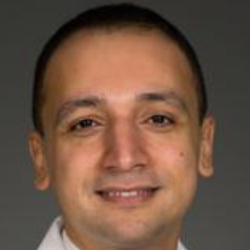Glycomic Modulation of HIV Persistence and Immunopathogenesis: Biomarkers and Therapeutic Strategies

When:
Monday, December 16, 2024
12:00 PM - 1:00 PM CT
Where: 625 N Michigan Ave, Suite 1400, Stonewall Conference Room, Chicago, IL 60611 map it
Audience: Faculty/Staff - Post Docs/Docs
Contact:
Dana Kauffman
dana.kauffman@northwestern.edu
Group: Third Coast Center for AIDS Research
Category: Academic, Lectures & Meetings
Description:
The Third Coast Center for AIDS Research (TC CFAR) will host a hybrid seminar, “Glycomic Modulation of HIV Persistence and Immunopathogenesis: Biomarkers and Therapeutic Strategies,” featuring Mohamed Abdel-Mohsen, PhD, at Northwestern University Feinberg School of Medicine. Tom Hope, PhD, professor in Cell and Developmental Biology, Obstetrics and Gynecology, and Biomedical Engineering at Northwestern University, will moderate the seminar.
Host glycans play a pivotal role in modulating immune responses, yet their influence on HIV persistence and immunopathogenesis remains unclear. This presentation will delve into how HIV exploits host glycans on the surface of infected cells to evade immune surveillance and discuss strategies for developing novel immunotherapeutic tools to counter this evasion. Additionally, Abdel-Mohsen will examine how HIV disrupts systemic and intestinal glycans, allowing for the identification of novel glycomic biomarkers that predict viral rebound following ART discontinuation and the onset of aging-related comorbidities in people living with HIV during ART use, as well as the development of novel approaches to delay the progression of such comorbidities.
About the Presenter
Mohamed Abdel-Mohsen, PhD, is an associate professor of Medicine (Infectious Diseases) at Northwestern University. In January 2025, Abdel-Mohsen will become director of the TC CFAR’s Virology and Immunology Technology Core. He joins the TC CFAR from The Wistar Institute, where he most recently served as co-director of the Penn CFAR Virus and Reservoirs Technology Core.
The Abdel-Mohsen laboratory has made significant advances in three complementary areas: 1) how viral infections such as HIV alter the glycosylation of infected cells to evade immune surveillance; 2) how glycan-based interactions between the gut and its microbiota influence inflammation during chronic HIV infection; and 3) how glycans on circulating glycoproteins modulate immunological functions and inflammaging, an aging-related chronic inflammation that can be induced by infections.
The work of the Abdel-Mohsen laboratory has resulted in several mechanistic discoveries and glyco-immunotherapeutic tools. This foundation uniquely positions Abdel-Mohsen’s team to explore the uncharted territory of immunotherapy targeting glycan modifications to address a range of immune-centric diseases, including HIV.